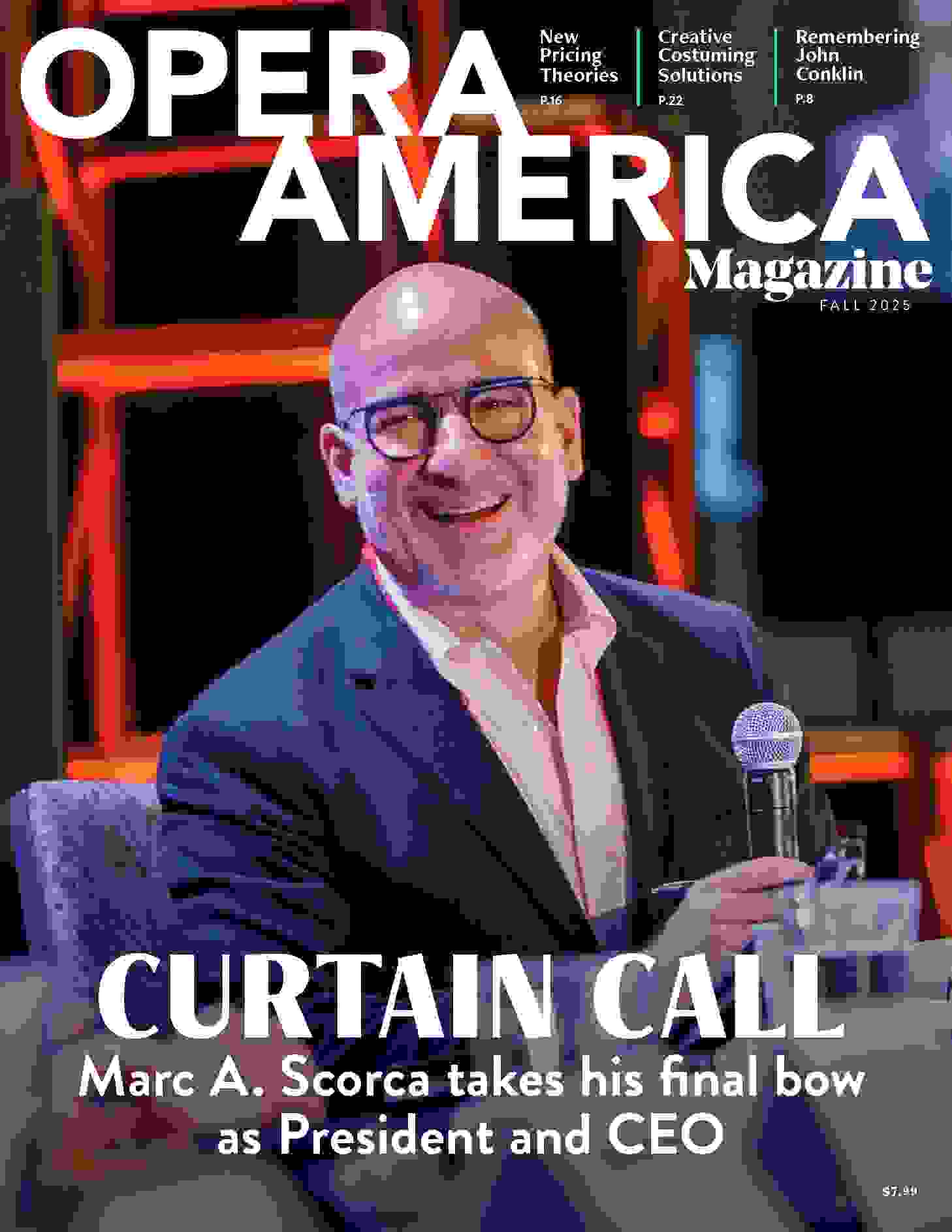What Do Millennials Want?
In 2015, The Wallace Foundation launched Building Audiences for Sustainability, a six-year, $52 million initiative aimed at strengthening the audience-building efforts of 25 performing arts institutions, as well as providing insights to the field in general. Over the next two years, OPERA America will share the foundation’s research with members, and will work with opera company staff and outside experts to develop strategies that respond to what has been learned. It will be a collective effort that strengthens the field.
Many of the participating organizations are specifically targeting millennials: people who are roughly 18 to 34 years old. The report “Building Millennial Audiences: Barriers and Opportunities” gathers research from participating arts organizations about members of the millennial generation: their tastes, their habits, their aspirations. Here are some key findings.
(Analysis for the report was conducted by Marketing Research Professionals Inc. for The Wallace Foundation. The full report can be found here.)
- 43% of millennial adults are non-white, the highest share of any generation.
- 73% of millennials are likely to move in the next five years.
- Millennials face more financial challenges than prior generations. Many may never catch up, creating a permanently more difficult environment for arts organizations.
- Annual Earnings (Median)
- 1990: $36.7k
- 2009-2013: $33.9k
- Student Loan Comparison (2002 to 2012)
- Volume of loans is up 77%
- Average full-time student debt is up nearly 60%
- Net Worth (Median)
- 1995: $18,200
- 2013: $10,400
- 90% use social-media networking sites.
- 73% check their phones a few times per hour.
- 87% keep their smartphones constantly by their side, day and night.
“Risk” is key. Millennials are willing to spend money and time more freely for rock concerts or other special events they know they’ll enjoy, rather than for an event they’re not sure about.
- Millennials often think performing arts events cost more than they do. When estimating the lowest price for an event with tickets starting at $20, they offered an average guess of $44.57 — more than double the actual figure.
- “No one to go with” is a key barrier across organizations, regardless of discipline or Many thought it would be difficult to find a companion willing to invest time and effort in attending opera.
Arts groups in popular or gentrifying neighborhoods have a good opportunity to reach out to residents and visitors.
|
|
Millennials |
Gen X |
Boomers |
|
Prefer “Car Optional” Place |
63% |
44% |
49% |
|
Live in City Now |
46% |
36% |
30% |
|
Want to Live in City in the Future |
37% |
28% |
22% |
Leading sources of information about events (in descending order)
Traditional media — TV, radio, newspapers and magazines — rank in the middle or near the bottom.
- Word of Mouth
- Social Media
- E-mails
- Organization websites
- Brochures/mailings
Top barriers to attendance
- Cost – tickets and evening out
- No one to go with
- Busy with other things
- Not familiar with or aware of arts organization
- Doesn’t fit schedule
- Don’t like type of performance or programs
- Too far away/hard to go to
Average number of sources used to prepare for visit
Millennials like to prepare before attending a cultural activity by consulting the organization’s website, social media and other online sources, along with brochures and news articles.
- Millennials - 1
- Gen X’ers - 8
- Boomers - 7
Since 1992, opera attendance among 18- to 34-year-olds has declined only modestly (roughly 20%), but enormously — more than 45 percent — among 35- to 49-year-olds.
Top barriers that keep millennials from attending the performing arts are cost, lack of people to go with, being busy with other things, and limited awareness and knowledge of the arts organizations.
There is fierce competition for millennials’ time. Competition includes other cultural events, as well as all of the other ways millennials spend their free time.
The performing arts help them:
- Feel transcendental – part of something bigger.
- Feel alive and present.
- “Forget” themselves and get away from day-to-day stress.
- Enhance their sense of self or self-identity.
Is opera buzz-worthy?
- Millennials like events that are complete experiences, with food, drink and opportunities to
- They want to be able to talk about what they’ve experienced on social media and in live conversations.
- Being surrounded by others like themselves makes going fun; being surrounded by older patrons does
- While some millennials love dressing up and enjoying the pageantry of the symphony, ballet or opera, many want events with no formality or “dress ”
A whole “experience” is better than just a performance.
- Food, drinks and a place to socialize
- Access to performers
- Unusual venues
What competes with opera?
Performing Arts
- Rock concerts
- Comedy/Improv
- Plays and musicals
- Orchestra concerts
- Outdoor Festivals
- Lectures
- Dance events
Other Entertainment
- Restaurants and bars
- Movies
- TV/Netflix
- Museums/galleries
- Reading
- Cooking
- Parties
- Working out
- Sports
Top reasons for going to the opera
- Feeling transcendental — part of something bigger
- Dressing up for a night out
- The beauty of the sets, the performance and the venue
- De-stressing, feeling present in the moment, forgetting yourself
Millennial Aspirations and the Arts
An arts organization can reach millennials by communicating the benefits of attendance: how its offerings can connect to broader desires in their lives.
|
Aspirations |
Benefits |
|
Stretch the self, feel alive |
A journey to “somewhere bigger”; a trip beyond your comfort zone |
|
Enhance sense of identity |
A chance for self-discovery and reflection, a look at how others work through conflicts and identity issues |
This article was published in the Summer 2017 issue of Opera America Magazine.






